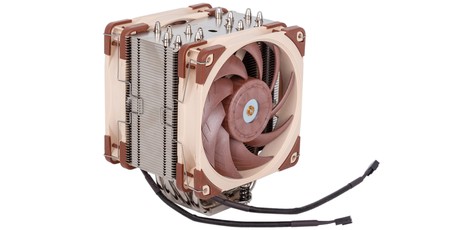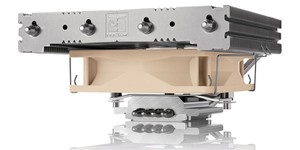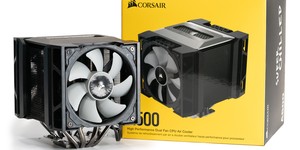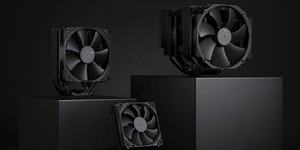
Test Setup
The performance of CPU coolers can vary depending on the CPU they're installed on due to differences in socket mounting mechanisms and processor thermal properties. As such, we test each cooler in up to four separate test systems depending on what sockets are supported. All systems are overclocked to place added stress on the coolers. The LGA 1151 socket is likely the most popular among enthusiasts, and the results from this should be roughly applicable to LGA 1156, LGA 1155 and LGA 1150 users too. The LGA 2066 socket is used for Intel's Extreme Edition CPUs. Anyone using the older LGA 2011 and LGA 2011-v3 sockets will want to focus their attention here, too. AM4 is AMD's current mainstream socket for Ryzen-based CPUs and APUs, and results here are roughly applicable to all other AMD AM and FM sockets since they use a very similar cooler mounting mechanism. Finally, Socket TR4 is used exclusively for AMD's massive multi-core Threadripper CPUs.
The coolers are installed in a fully assembled system to replicate a realistic scenario. The case housing each system is a Corsair Graphite 730T, which is spacious enough to handle practically any cooler and has a traditional front-to-back airflow arrangement with two intakes and one exhaust, all of which are fixed at full speed for consistency. Closed-loop coolers are mounted with their fans as exhausts. All cooler fans are also fixed at full speed to ascertain maximum performance, though if lower fixed speed settings are available we test with these enabled too.
We place our test rigs under load using the small FFTs stress test in the free application Prime95 26.6, as this test is designed to place maximum load on the CPU. We use the free applications CoreTemp and HWMonitor to measure the temperature of our CPUs. We always take the maximum temperature for consistency and do so after 15 minutes, which is enough time for temperatures to plateau.
The results provided are the delta T results i.e. the difference between the recorded CPU temperature and ambient temperature at the time of testing. Our labs are not temperature-controlled, so this provides the most accurate method of comparison for coolers tested on different days. Any cooler that causes one of our CPUs to reach its thermal limit and downclock or turn off is considered a fail.
Intel LGA 1151 Test System (Quad-Core)
- Intel Core i5-7600K overclocked to 4.8GHz using a vcore of 1.225V
- MSI Z270 Gaming Pro Carbon
- 2 x 8GB Corsair Vengeance LPX 3,200MHz DDR4
Intel LGA 2066 Test System (18-Core)
- Intel Core i9-7980XE overclocked to 4GHz using a vcore of 1.1V
- Asus ROG Strix X299-E Gaming
- 4 x 4GB Corsair Vengeance LPX 3,200MHz DDR4
AMD Socket AM4 Test System (Octa-Core)
- AMD Ryzen 7 1800X overclocked to 3.8GHz using a vcore of 1.375V
- Gigabyte Aorus AX370-Gaming K7
- 2 x 8GB Corsair Vengeance LPX 3,200MHz DDR4
Results

MSI MPG Velox 100R Chassis Review
October 14 2021 | 15:04








Want to comment? Please log in.